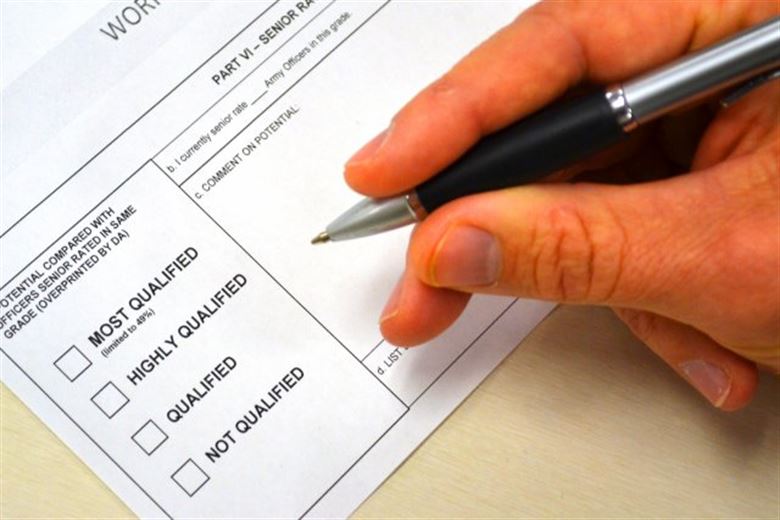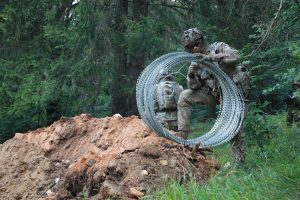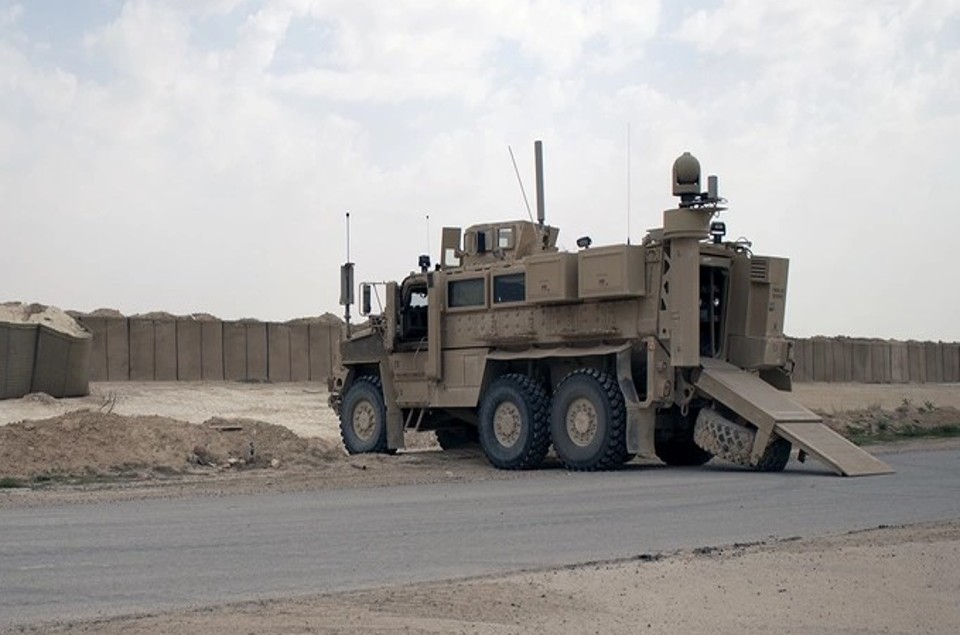What Junior Officers Should Know About Evaluations

Part of courage is being honest with ourselves. Too often, when it comes to evaluations, we as leaders are not honest. We say the evaluation doesn’t matter, not to put too much stock in evaluations, and trust evaluations to always be fair – then use evaluations as the key metric in promotion, schools, command, and special programs. At least 51% of a population will receive a highly qualified (HQ) in any rating period. There’s very little transparency to most rating schemes and enumeration, most raters/senior raters will maintain most qualified (MQ) evals for a subordinate – placing leaders on a distinct ‘track’ in any unit. Those factors mean evaluations consistently come as a surprise to rated personnel and can quickly lock them into competitive and non-competitive cohorts across a career track.
So how do you, as a junior officer, ensure you get an MQ, not an HQ? The reality is there is no way to guarantee a particular block – but there are several things that help. Here are a few tips.
Evaluations are almost entirely subjective based on the judgment of the rater and senior rater – with the preponderance of weight to the senior rater. AR 623-3 describes the process of performance and evaluation counseling, along with a support form. Still, there is no enforcement mechanism and no penalty for raters/senior raters who do not follow the regulation. One of the most common complaints on command climate surveys and the Army-wide Center for Army Leadership Annual Survey of Army Leadership (CASAL) survey each year is the lack of counseling and feedback from the rating chain. Referred reports must be justified – all others are fair game.
In the best units, raters and senior raters counsel quarterly with a transparent accounting of how they would rate you today, your performance vs. your peers, and your potential. If you serve under a rater and senior rater, who counsel to standard, in a unit that enforces counseling take their counseling to heart above all other advice.
If not, as many in the Army experience, here are some specific actions you can take to drive your destiny.
- Do not disqualify yourself from the top tier. Failure or mediocre achievement on Army standards will often put you in the bottom tier of officers. An officer who can’t show up to meetings on time, can’t qualify with their weapon, is overweight, fails an APFT, or has a behavioral issue is out of the running for a competitive evaluation.
- Excel at the personal basics. Show up to every formation, meeting, and unit event on time or early. Shoot expert. Score excellently on the APFT. Be medically ready. Earn the available qualifications for your specialty – EIB, EFMB, etc (Expert Infantry Badge and Expert Field Medical Badge). Be in the right uniform, well-groomed, and with excellent comportment at all times. Read and know the SOPs, policy letters, and orders for your unit. Live the Army Values on and off duty – treating subordinates, peers, and civilians with dignity and respect. Excellence is achievable in all these areas with discipline. Some people are naturally physically fit, and some aren’t. The most picture-perfect leader does not always have the best internal values and abilities. But if you do not achieve in these areas, it’s hard to showcase other talents. If physical training (PT) does not come naturally, get help with your diet, have an exercise plan in addition to unit PT, and work to maximize your potential. If you struggle with timeliness or uniform standards, make the adjustments to your lifestyle and schedule to correct.
- Excel at the basics of leadership. Counsel your subordinates. Start and end meetings you run on time, and run them well – agenda, focused topics, decisions, and deliverables. Have a schedule (training, operations, and maintenance) for your unit/element and stick to it. Carry a leader book and know your Soldiers. Have a plan and execute it to improve your Soldiers’ personal basics and readiness. Conduct PCCs and PCIs.
- Train well. Know ADP 7-0, a leader’s guide to AARs, and a leader’s guide to training meetings. Maximize the amount of time your unit spends training, leveraging the training cycle to maximum effect. Manage time and resources to squeeze every moment of quality training you can, including hip-pocket, Soldier Training Time, and creative PT.
- Have goals and communicate them. Know what you want to achieve personally, professionally, and with your unit – and tell your superiors and subordinates. Most leaders will want to help you fulfill your ambitions.
- Participate in unit events. Mandatory and optional fun, right-arm nights, hail and farewells, organizational days, commander’s receptions, reenlistments, and all the rest of the events units hold inside/outside of business hours can feel tedious and wasteful. But your commitment to these events demonstrates to leaders your commitment to the team. Your attendance or absence paints a picture to the commander.
- Make your commander’s priorities yours. A good commander will communicate intent and priorities clearly. But every commander, even the mediocre and bad ones, communicate intent by how they spend their time. You will have your own goals and priorities – but work your commander’s priorities first.
- Make your peers better. Enumeration against your peers is a vital aspect of the evaluation process. But too many officers draw the wrong conclusions from that enumeration. You are not competing against your peers; you are competing against yourself. The goal is to be the best leader you can by making everyone better – not by hoping others will be worse than you. Not everyone will see it this way – but those who see officership as a competition are poison to units and the Army. Many will secure good evals – but do not take that path. Be generous with your time and advice for other officers struggling. Study officers who excel, learn from them and be gracious about giving them credit. A leader who makes their peers better will ultimately be recognized. Blue Falcons and spotlight rangers can succeed in short bursts – but reputation follows you everywhere.
- Finally, and this is the one tip that may not affect your evaluation, run the evaluations you control the right way. You can’t control what those above you do – but you can control your subordinate formation. Counsel to standard, inspect counselings from your subordinates, and ensure the evaluations you write don’t promote leaders who can’t or won’t counsel to standard. We build the Army every day – evaluations are a vital component of shaping behavior, culture, and values. Any organization gets more of what they reward and less of what they punish.
Ultimately, what you do or do not do will paint a picture to your leaders. There are no guarantees in life or evaluations. But if you follow those guidelines more often than not, you will excel amongst your peers.
———
LTC Charles D. Hood is a military intelligence officer who has served in a variety of strategic and tactical assignments, including 2ID, 101st ABN DIV (AASLT), SHAPE, NSA, JSOC, DIA, 10th MTN DIV (LI), and INSCOM. He holds a BA in History from UNC Asheville and an MA in Political Science from Baylor University. You can reach him on his mail.mil email (charles.d.hood.mil@mail.mil).
MAJ George Gurrola is a military intelligence officer and currently serves as an instructor in the Department of Foreign Languages at the United States Military Academy at West Point. He holds a master’s degree from Georgetown University’s School of Foreign Service and a BA from Texas AM University. He previously served in the 205th Military Intelligence Battalion, 3rd Battalion, 75th Ranger Regiment, and the 2nd Infantry Division. You can reach him on his mail.mil email (george.l.gurrola.mil).
——–
Image from: https://media.defense.gov/2013/Mar/29/2000063061/780/780/0/130329-A-XX000-001.JPG
Related Posts

Fighting as an Enabler Leader
(U.S. Army Photo by Cpl. Tomarius Roberts, courtesy of DVIDS)Enablers provide capabilities to commanders that they either do not have on their own or do not have in sufficient quantity …

Defeating the Drone – From JMRC’s “Skynet Platoon”
If you can be seen, you can be killed—and a $7 drone might be all it takes. JMRC’s Skynet Platoon discuss their TTPs to defeat the drone.

3 Deployments Before Captain: Reflections From Down Range
Deployments challenge junior officers beyond their primary duties, often demanding adaptability, wellness management, proactive leadership, and moral integrity maintenance.
